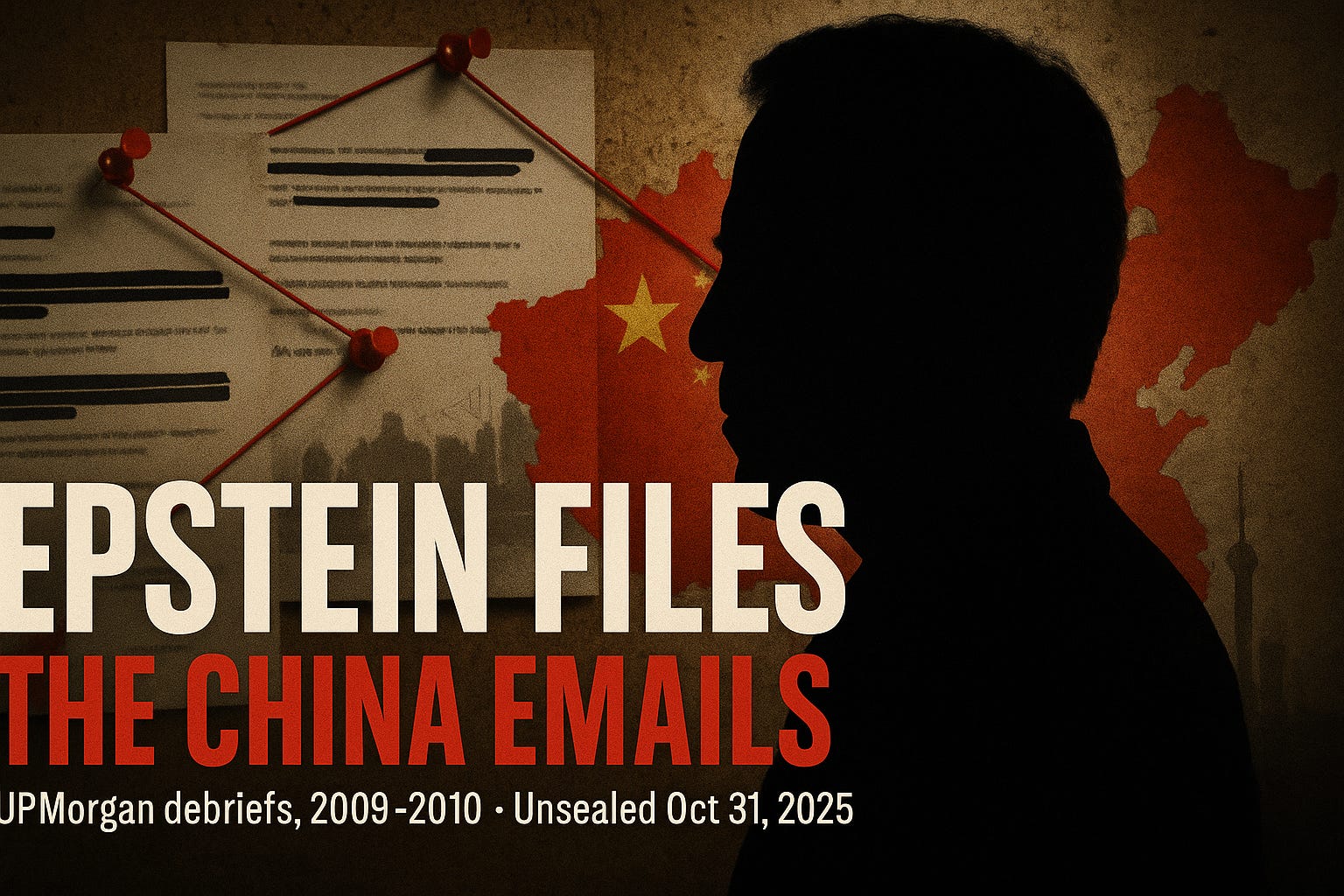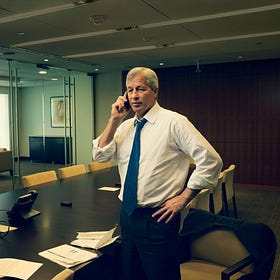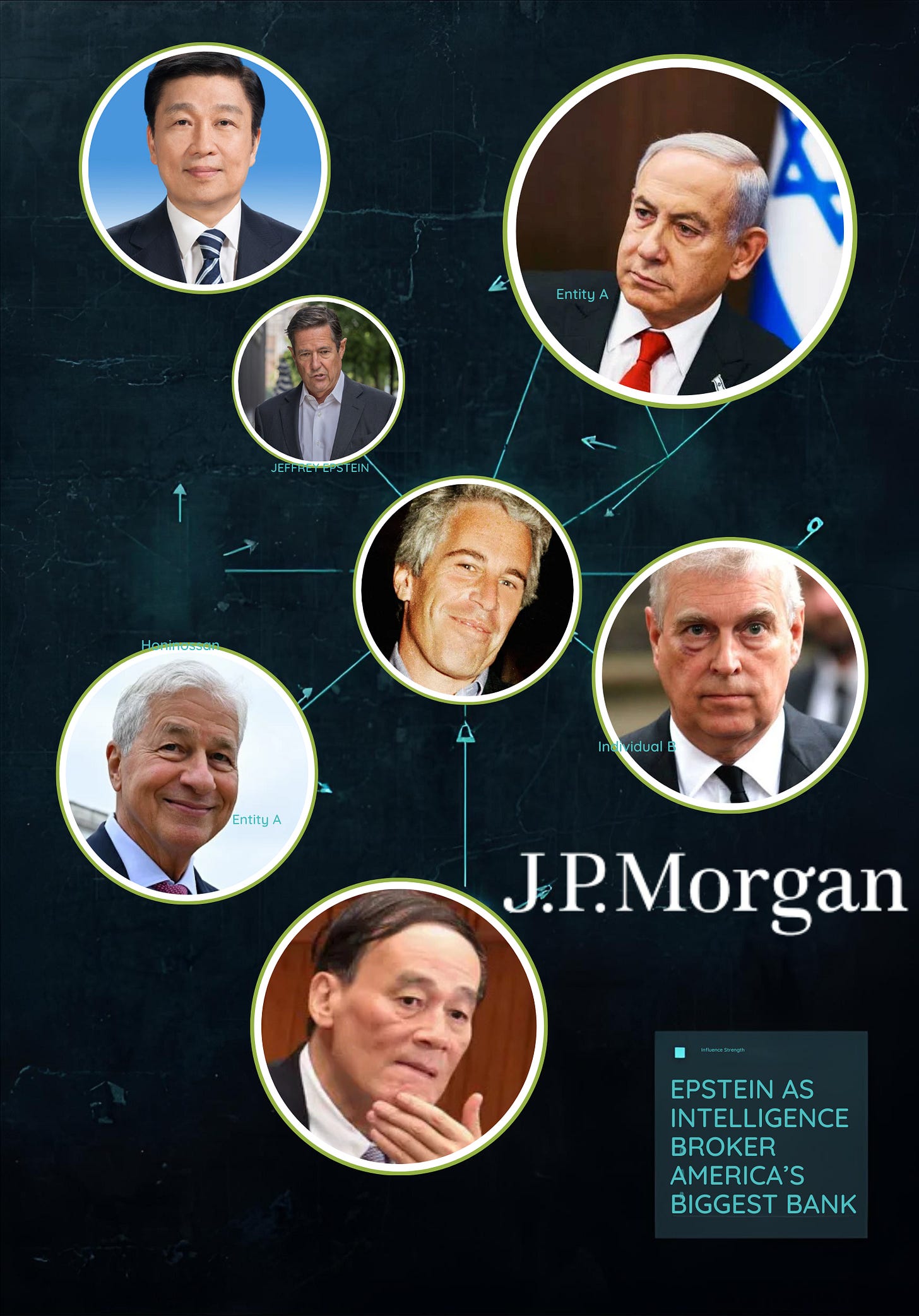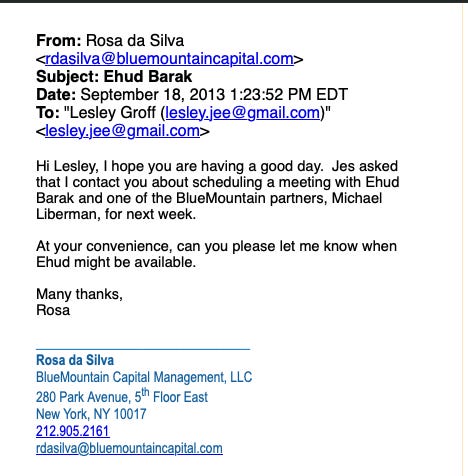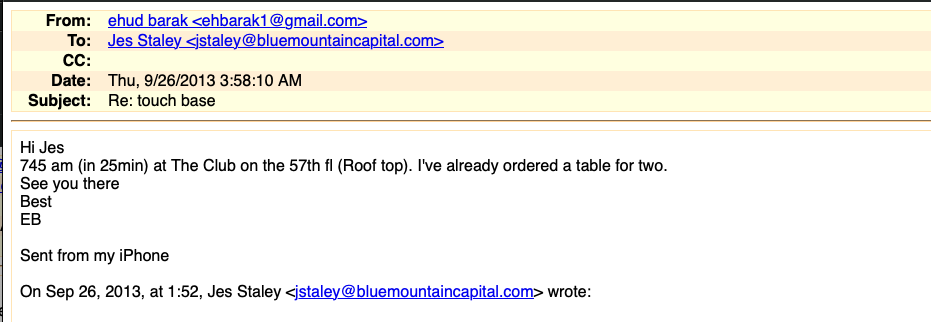EPSTEIN EXCLUSIVE: How a Convicted Sex Offender Advised JPMorgan on China Strategy
Newly unsealed emails show Jeffrey Epstein provided geopolitical intelligence to America's largest bank—and executives reported back like assets to a handler
Court documents unsealed on October 31st reveal something that transforms our understanding of Jeffrey Epstein. Between 2009 and 2010, while he was a registered sex offender, Epstein provided detailed strategic advice to JPMorgan Chase executives on China market expansion. Then those same executives—including Jes Staley, CEO of JPMorgan’s Investment Bank—reported back to him about meetings with some of China’s most powerful officials.
It’s not every day a major US bank consults with a convicted child abuser about relations at the highest level of the Communist Party, but it’s a key piece of evidence we found in a tranche of just unsealed Epstein files.
In the emails, Epstein functions more like an intelligence handler than a billionaire investment advisor. In October 2009, Epstein sent Staley a multi-paragraph memo on China strategy. The guidance covered entity structure for Chinese markets, regulatory navigation, cultural protocols, and government relations. Epstein wrote about “face-saving” in Chinese culture, how to approach Treasury officials, and the importance of demonstrating long-term commitment through “demonstration projects” rather than just proposals. He advised creating “a dedicated China entity, with its own board of advisors” that would have “independent oversight” while respecting Chinese cultural sensitivities.
This is the kind of advice that comes from people with deep access to Chinese government decision-making. Not from money managers or hedge fund operators. From intelligence operatives, senior consultants with decades of China experience, or geopolitical strategists with connections to officials who actually run things.
Then came the payoff. In September 2010, Staley sent Epstein an email reporting on his progress. The subject line alone tells you everything about their dynamic: Staley wasn’t just sharing news with a friend. He was debriefing a handler.
“And just had the most senior meeting JPM has had save for Jamie meeting with Wang Qishan,” Staley wrote. “I spent almost 2 hours with Minister Li Yuanchao of the Organization Department. He will be in the next group and will come in ‘11.”
Minister Li Yuanchao wasn’t some mid-level trade official. In 2010, he controlled the Organization Department of the Communist Party of China—the personnel office that decides every senior appointment in government, military, and state-owned enterprises. He was a member of the Politburo. He later became Vice President of China. Meeting with the Minister of the Organization Department means getting access to succession planning, factional politics, and the most sensitive personnel decisions in the Chinese government.
Staley mentioned that only Jamie Dimon had met with someone more senior—Vice Premier Wang Qishan, who oversaw China’s response to the 2008 financial crisis. This was the absolute top level of the Chinese government. And Staley felt compelled to tell Epstein about it, in detail, including what would happen next.
Jamie Dimon Has Some Explaining to Do About Epstein
JPMorgan Chase processed $1.1 billion through Jeffrey Epstein’s accounts. Wire transfers to Russian banks. Payments to women in Belarus, Turkmenistan, and Turkey. Cash withdrawals of $300,000 at a time. The bank’s own compliance officers screamed warnings for years. The general counsel wrote that Epstein “should not be a client.” Anti-money laundering specialists flagged transaction after transaction.
October 2009: Epstein provides a strategy. September 2010: Staley implements it and reports back. This is how intelligence handlers work with assets. The handler briefs an assignment, the asset executes the mission, and the asset debriefs the handler.
How did Epstein acquire expertise in Chinese government structure, cultural protocols, and regulatory navigation? Who briefed him? What access did he have to Chinese decision-makers? And what did he do with the information Staley provided about meetings with officials who controlled China’s entire leadership pipeline?
The Israeli Intelligence Connection
An obvious source of this operational detail is Israeli Military Intelligence. Epstein worked for Aman, which perhaps explains why Epstein introduced Staley to former Israeli PM Ehud Barak.
According to Ari Ben-Menashe, a former Israeli intelligence operative, Robert Maxwell introduced Epstein to Israeli military intelligence in the early 1980s.
The Barak-Staley-Epstein triangle wasn’t a typical bank-customer relationship. Newly obtained emails from September 2013 show the connection remained active years after Epstein’s conviction—and even after Staley left JPMorgan.
On September 18, 2013, Staley’s assistant at his new hedge fund contacted Lesley Groff—Epstein’s longtime assistant—to schedule a meeting between Staley and Ehud Barak, the former Israeli Prime Minister and Defense Minister.
One week later, Barak emailed Staley directly: “7:45 a.m. (in 25 min) at The Club on the 57th fl. (roof top). I’ve already ordered a table for two.” The casual coordination reveals an established relationship. More significant: Staley coordinated the meeting through Epstein’s infrastructure—even as JPMorgan was terminating Epstein’s accounts under regulatory pressure that same year.
This pattern extended across multiple countries and persisted for years after Epstein’s conviction.
Paid subscribers have access to a deeper dive. The unsealed documents show Epstein connecting JPMorgan executives to government officials across China, the UK, UAE, and Israel throughout 2008-2013. Also read the China emails for yourself.



